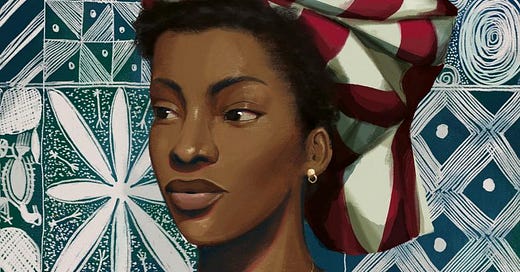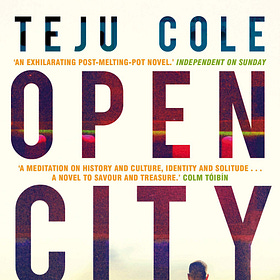When I first saw the title of this book, it reminded me of a book I read for Yoruba Literature in Secondary School. I’m not sure why because I can’t even remember the story. How much simpler life was when my biggest worry was getting to school early and passing CA tests but I digress not.
The Parlour Wife is a historical novel set in Lagos, Nigeria, between 1939 and 1943 during the World War II. It follows 18-year-old Kehinde Ilesanmi, a woman who had to give up her aspirations of being when she’s married off as a third wife to a much older man when her family loses their main source of income. It’s the author’s debut novel published in September 2024.
“Iyawo parlour, that’s all you’re here for,” Mama Tope whispered to Kehinde as she walked past her when dinner was over, on her way out of the room…Kehinde tried not to let the insult sting...It was true, that was all she was here for. To sit in the parlour, looking pretty, like a new piece of furniture that Baba Tope wanted to show off. An acquired doll to be shared with his friends, one that had been trained to remain silent, to keep smiling even when it had been handled roughly.”
Greetings, once again dear reader👋🏽👋🏽
I hope you are doing well and taking good care of yourself.
Welcome to another edition of this spectacular newsletter.
Given a recent tragedy Kehinde’s family suffered and the state of the nation at the time, her wedding to Mr Ogunjobi is conducted in the living room of her father’s house by a traditional priest. She is then whisked away by her new husband to meet the rest of his family. Mama Tope, the eldest wife made sure to show Kehinde that she wasn’t going to be cordial with her from the moment they met.
Baba Tope, as Mr Ogunjobi is called by everyone, is more or less a king in his home. His word is law and Kehinde quickly learns to do exactly as he says, not to talk back to him or ask him any questions. He likes his wives to be busy so he rents a stall for Kehinde at the market where she decides to make and sell snacks.
Ayo kept telling her that she would grow to love their husband, but Kehinde did not think it was that simple. He disgusted her, and all she really felt for him was fear.
Life is her new home is different from anything Kehinde had ever known but Ayo, the second wife is kind and friendly to her, helping her get settled in and teaching her their husband’s likes and dislikes. Kehinde soon settles into a routine at her new home, going to her stall in the market and making time to write in her journal, help Ayo’s daughters with their homework and making their hair.
When a year had passed and Kehinde still wasn’t pregnant, pressure was mounting. Her mother’s concern soon became anxiety and fear. Over the course of the novel, we see Kehinde struggle with her duties as a wife and the constraints of a patriarchal society as she finds her own voice in her journey to agency.
In the Ogunjobi household, we see the peculiarities of polygamous marriages and the competitive relationships among co-wives and their children. It portrays the societal pressures that pit women against each other in the quest for validation.
“You must secure your position in your household,” she had said to Kehinde during her visit home last week. “Without a baby, he will start to think there’s something wrong with you. What if he sends you back?”
Things take an interesting turn when Kehinde is offered a part-time role as a secretary of the Lagos Market Women's Association. She could do the required work from her stall in the market, making it easy to keep it a secret from the members of her household at first. What’s that thing they say about fire again?
Through Kehinde’s eyes, we see the complexities of colonial Nigeria, and the effects on the lives of women navigating traditional roles at a time of global conflict. The struggles and resilience of Nigerian women during World War II are highlighted as the novel explores themes of identity, colonial oppression, gender inequality empowerment, and resistance.
The book is compelling, the author's rich descriptions transport you to the streets of Lagos in the1940s. It’s a poignant story that interweaves personal growth with retelling socio-political events, making it a significant contribution to historical fiction. It brings to mind the story of Funmilayo Ransome-Kuti.
Have you read this book? What did you think about it? Leave a comment, maybe? 😊
#66: A Revision of the 19th Century Flaneur
In Open City, Julius, a psychiatry resident, uses the landscape of New York to both conceal [configure], and reflect upon the trials of his life as a Nigerian living and working in America. The doctor-in-training possesses an identity similar to that of the author, who is also American-born but raised in Lagos...In this novel, Cole proved the validity of the city as a palimpsest but not just of different times…of different places, beyond borders and even oceans.





